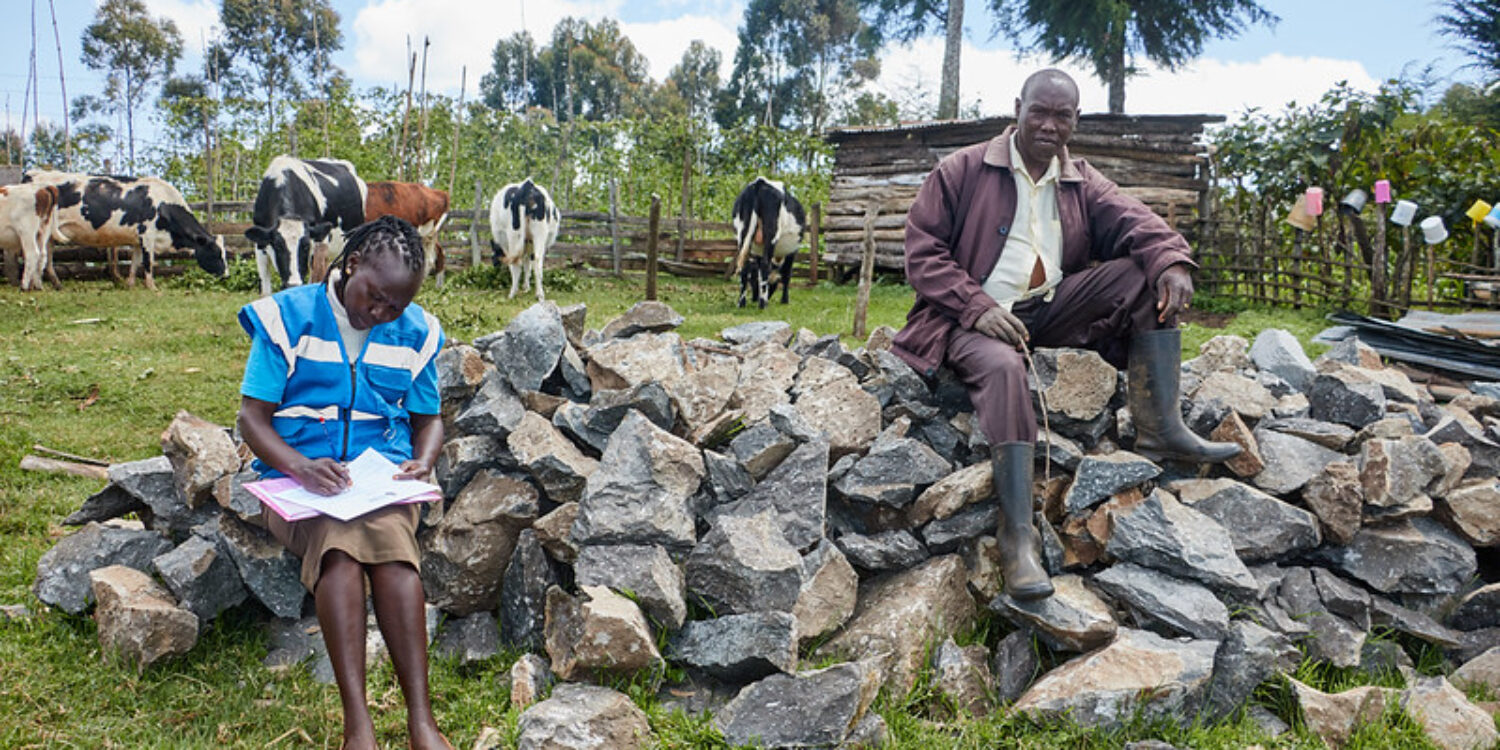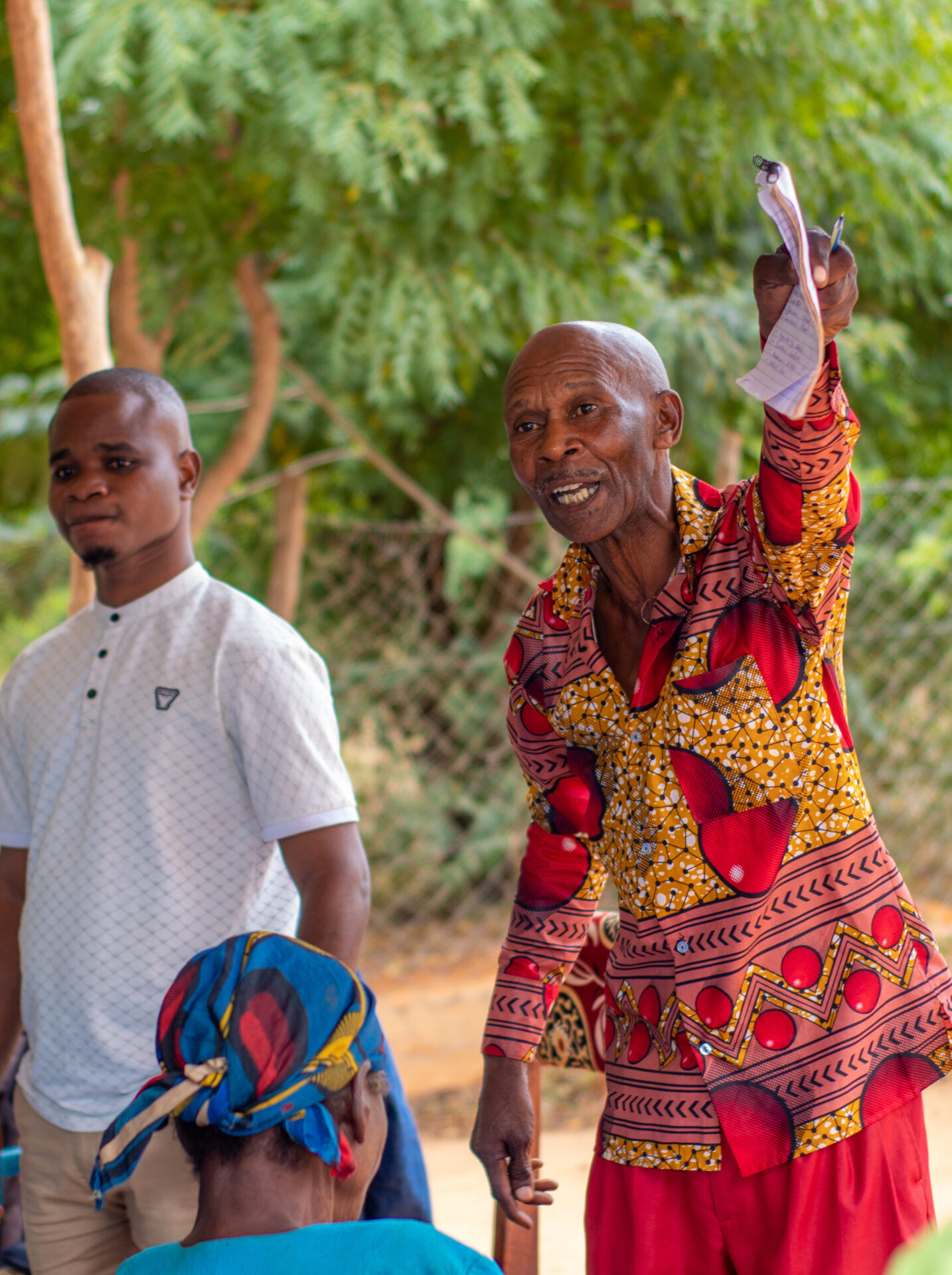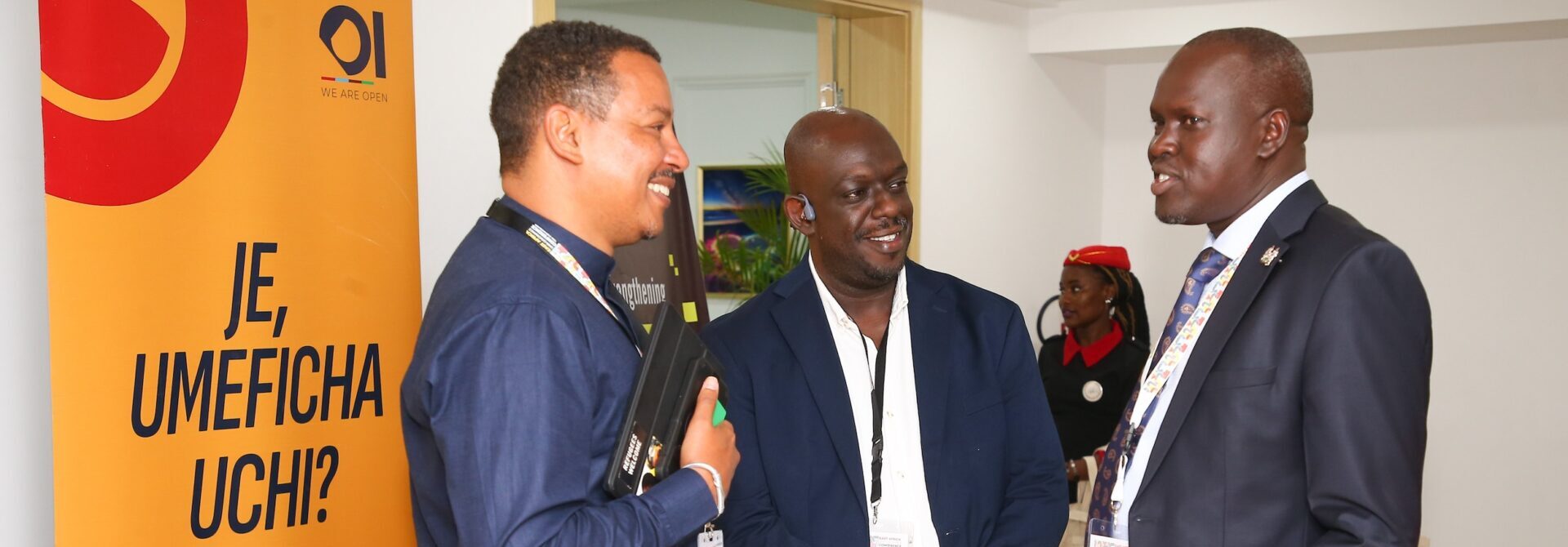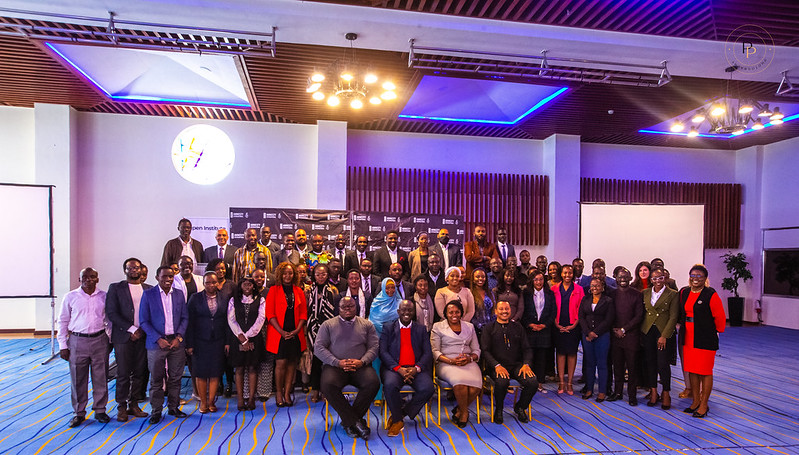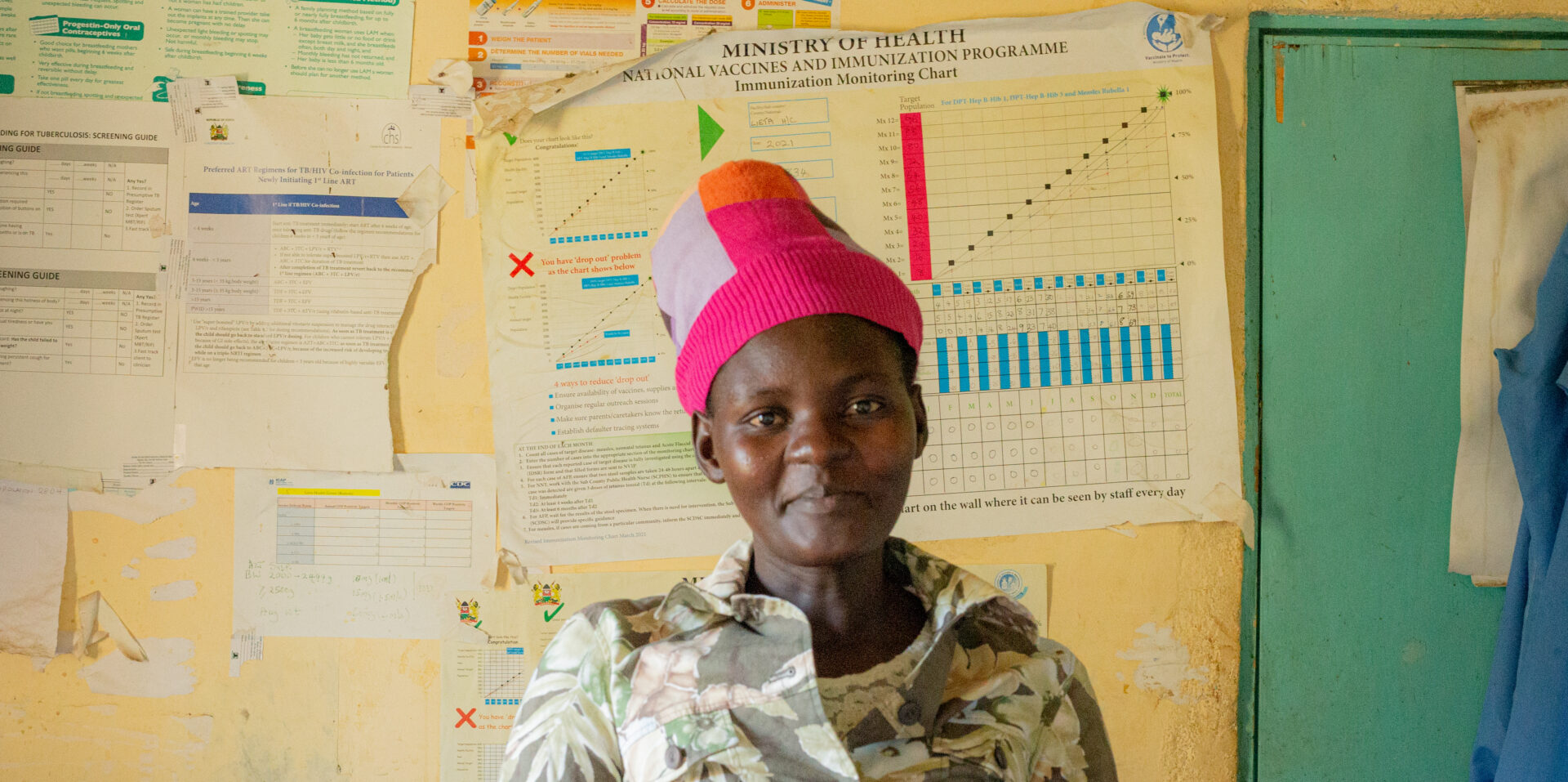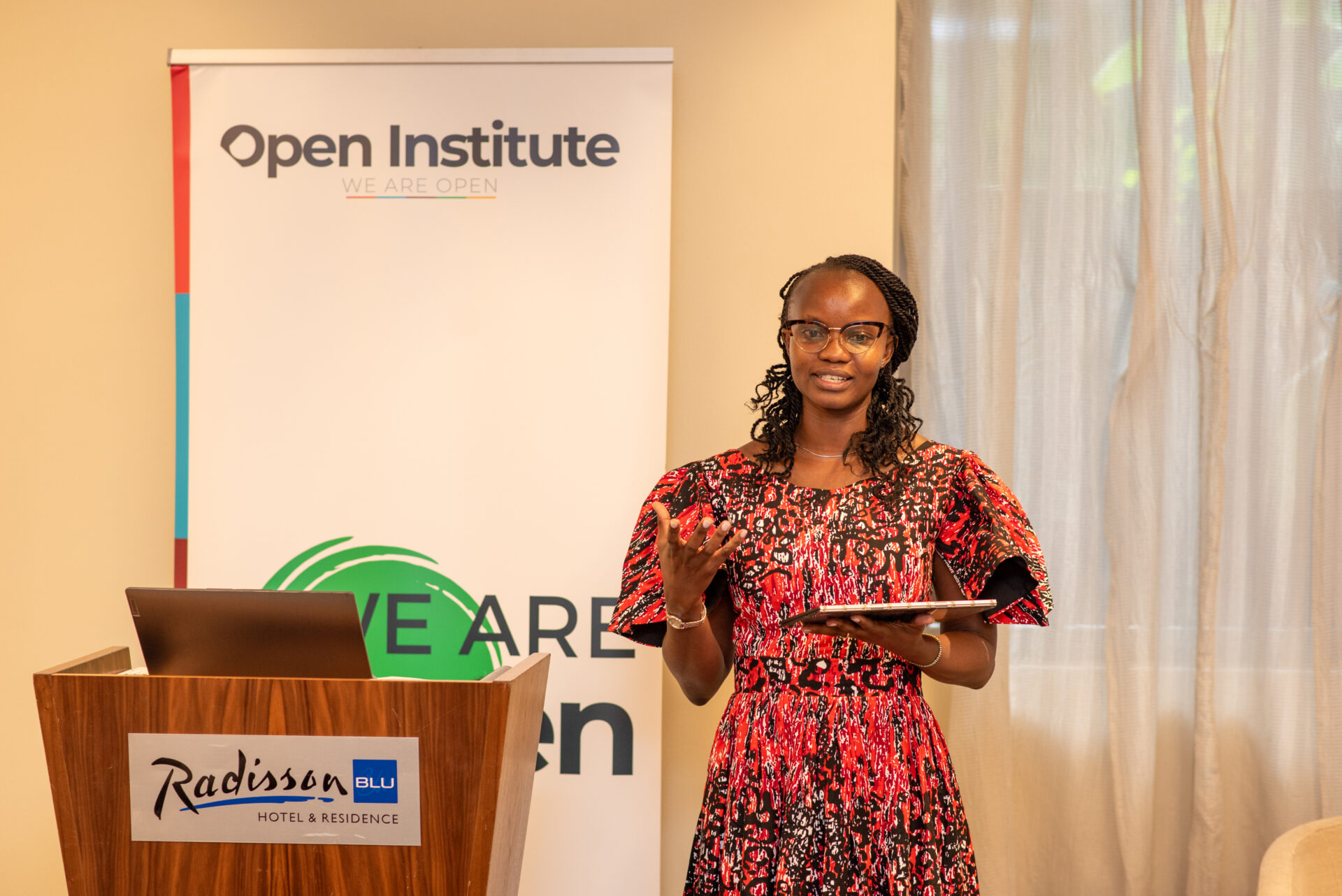When we started the Open Institute, we never imagined that it would achieve so much in such a relatively short time. Don’t get us wrong – our ambition was, and still is, humongous. We truly want to see a world where citizens are so active that they tell their governments what to do and how to do it. We think that it is in the realm of possibility that in our lifetimes, in this generation, data can be more than it is today – a tool for governments to manage the population in generally vague developmental terms and for the private sector to manipulate markets to make even more profits. We think that data can be a tool to strengthen citizen voices and empower them to guide the hand of development.
Yes, we went there, economists. We think that while GDP is useful as a tool for economic measurement, it falls way short as a tool for measuring development. The questions that plague us, and many other Africans, include why it is that even when there was a generally accepted rebound of the continent’s economy – as the world proclaimed Africa’s Rising – why is it that the gap between the rich and the poor widened even more at that same time? Why is it that the quality of life and the hopes and optimism of the youth have continued to dwindle – even before COVID-19 introduced itself to the world? We think that the true way of measuring development is the actual availability of running water in every household, that in verifiable ways, every child has access to quality education and that every young person can have a decent, well-paying job if they go for it.
The idea has grown on us over these past 8 years that it is possible for governments to truly account for the development of every household – an idea that the very concept of devolution supports. We have come to believe that it is actually possible for governments at all levels to work together with their citizens to gain insight to the needs of every single household in their purview. It is actually possible, given technological advancements, for every city to account for every inch of every street and building to make sure that it is accessible to all (especially including persons with disabilities). We are convinced that development can better be allocated when it is apportioned to specific needs of specific households – or at least villages. It defeats the sense that based on generalised surveys, resources are often distributed in a way that does not cover the households that need them – yet technology allows a government to deliver fertiliser for example to specific households that need fertiliser support. It is possible for everyone to count and be accounted for. For us, “Leave No One Behind” is not just a clever slogan – it is possible.
Even though our ambition is as real for us as when we first started, we never imagined that we would start working with all 47 counties in Kenya to build the systems and processes they need to be transparent and publish their data so quickly. We met all county governors back in 2013 at the Serena Hotel, working with the Council of Governors and the World Bank and just like that, Open County was born and continues to grow from strength to strength. As we worked on this, we have had great lessons that we have shared. These lessons have culminated in the design of the County Data Desk, essentially a government-wide unit at the county level that mobilised data from government sources as well as citizen-generated data and harnesses it all to aid better more specific analysis, decision-making and resource allocation.
Imagine if when we started, you had told us that in 2016, we would work with community leaders in Lanet Umoja location and their local government officials to collect data from more than 12,000 households. Imagine that you further told us that we would watch that community use the data to get a dispensary built as well as a water filter in every household. We would have laughed you out the door. And yet, with the leadership of the late Chief Francis Kariuki and other leaders in the Nakuru North sub-county, we saw communities use data to develop amazing insight that greatly improved their active citizenship and engagement with government.
These seemingly unrelated activities have come together in the “home of champions”, Elgeyo Marakwet County, where we are working with the county government and hundreds of community health volunteers to collect data from every household in the county that will feed into the county Data Desk and empower Governor Alex Tolgos and his team to listen even more to their people’s needs and priorities. EMC, as we fondly refer to the county, is already one of the front runners in citizen engagement in Kenya. At least six other counties are gearing up to set up their data desks and start incorporating citizen data in their decision making.
COVID-19 has brought us into a new junction in our journey, one that we are trying to understand. As soon as the pandemic hit, we started collaborating with the government to find ways to better listen to the people and offer solutions where they could be found. We built a tool called Nuru, whose purpose was to promote citizen reporting around the responses to the virus in communities. Citizens reported everything from hiked prices at local shops to availability (or lack thereof) of water and other necessities to human rights violations. As the pandemic wore on, the citizen reporting waned and then changed in use. Today, Nuru is being used as a custom tool by AMREF, Advocacy Accelerator and other organisations to track, with data, the effects of COVID-19 in communities in eight African countries.
On reflection, we are clear that we have chosen to continue to be lab – a place of experimentation and trial for better governance and service delivery, by promoting transparency, accountability and active citizenship. We posted what this means in a previous post, as we introduced our director of Wellness, Loise Mboo, but but bears repeating. What this means is the following:
- We are always asking ourselves “What if” and “Why”. What if the government allocated budgets differently? What if citizens had the data in their own hands and could understand it enough to guide government? What if government officials could use technology all the time to communicate? What if the Ministry of mining knew that there are more than half a million families in Taita Taveta that depend on mining? Why does KNBS only use samples and what if technology can give them the ability to collect data from everyone?
- We are always pushing ourselves to do something new or to do something old in a new way or to prove something that does not exist/ has been inconceivable and we always try to work in spaces where others don’t go. A big chunk of what we must do pushes us to be fresh, to learn, to fail very publicly, to go to spaces others don’t go. In fact, a test that we have generally used to see if what we are doing is the right thing has been whether we have many people telling us “it’s not possible” or “it doesn’t make sense” or “that’s not how things are done”. This can be seen in many of our projects – of which started as experiments – e.g. Citizen Generated Data in hyperlocal communities, Open County, our support to government agencies like the Power of Mercy Advisory Committee, etc.
- We are often simplistic in our exploration. Importantly, we do not overthink the questions that we are exploring we try to explore as children do and document the lessons we are learning as we go – therefore create new knowledge or create new NUANCE to old knowledge.
- We are responsive and often opportunistic. The goal for us has always been to stimulate action by government and citizens in using data to change how service delivery and resource allocation is done. In our experience, that requires a certain level of opportunism that enables governments to do small things that cumulatively elicit a change in the way things are done. A good example is the Kenya Open Data Initiative. We don’t think it was particularly successful as a project in its own right. But it showcased that it was possible and not dangerous for the government to share data – so now when we see election results being shared in real-time, data being shared on treasury and other government websites it changes things.
In the coming days, we shall be talking more about how we are changing ourselves as an organisation and our evolving strategy for achieving our mandate. We are examining ourselves afresh as a team to see how we are better structured for efficiency and to continue to have impact even in the face of the dangers of COVID-19 and its restrictions with regard to travel and being with communities. There are numerous questions that we are looking into. Do we still need an office, given that we have not used ours this year? How can we strengthen our efficiency and connection as a team while working from home? How can we maintain a connection with communities even as we cannot travel to their villages and even have tea at their homes?
To get direction on these and many other questions, we are designing a series of experiments that we shall talk about and document as we go on. We are working to reimagine our organisation and the impact that we can have and your perspective is one that we shall value. We invite you to share with us your ideas and look forward to great partnerships.

